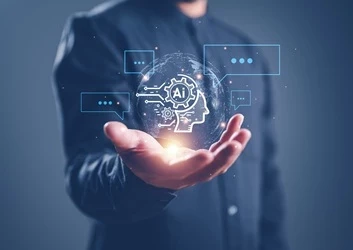Half of developers say AI can code better than most people
AI is already a part of developers’ day-to-day, with 78 percent using AI several times a week
Add bookmark
Over half (53 percent) of developers think that artificial intelligence (AI) large language models (LLMs) can already code better than most people. That’s according to new research from Clutch.
Clutch surveyed 800 senior developers and engineering managers, with 75 percent stating they expect AI to significantly reshape software development in the next five years.
The survey found that AI is already a part of developers’ day-to-day, with 78 percent using AI several times a week or more especially in coding, testing and reviewing stages. Almost half (49 percent) of senior developers and team leads say they use AI tools every day.
Become a member of the AI, Data & Analytics Network for free and gain exclusive access to premium content including news, reports, videos, and webinars from industry experts. Connect with a global community of senior AI and data leaders through networking opportunities and receive invitations to free online events and weekly newsletters. Join today to enhance your knowledge and expand your professional network.
Join NowAI can code better than most humans, but concerns linger over adoption
While 42 percent of developers are “positive” about AI, with another 29 percent either “excited” or “empowered” by these tools, some are concerned about how AI is being used in software development. Only 8 percent of respondents have no concerns at all.
The top concern is privacy, with around a quarter of respondents uneasy about how AI tools handle sensitive data. This is followed by jobs shifts; 14 percent see job loss as their top concern, while another 14 percent don’t fully trust the accuracy of AI-generated code.
AI has significantly optimized developers’ workflows, establishing itself as a highly valuable complementary tool, particularly for detecting errors, commented Arely Herrera, lab engineer at SecureFlag. “However, its use does not always represent the optimal alternative. In instances that demand a contextual analysis, adaptation to specific requirements or sensitive data management, AI cannot fully replace a developer’s experience and judgment when evaluating in-depth or highly personalized scenarios.”
While AI can provide viable solutions, these tools should be critically assessed before adoption, as they may sometimes lead to unnecessarily complex architectures or approaches, overlooking simpler and more effective options, Herrera added.
Register for All Access: AI in Business Transformation 2025!
AI skills are critical
As AI reshapes work it’s also changing what teams look for when hiring, Clutch found. Over three-quarters (79 percent) of respondents say AI skills will be essential for developers in the near future, with 76 percent stating they’d be more likely to hire someone with AI expertise.
What’s clear is that hiring managers are no longer focused only on language fluency or years of experience; they’re also asking whether candidates know how to work with AI tools effectively. This shift doesn’t mean AI is merely replacing people though, as 80 percent of developers see AI as an enabler, not a threat. Most believe its biggest value lies beyond automation, providing new methods for debugging, testing and prototyping that weren’t practical before.
“There is a valid concern regarding the potential displacement of junior developers if they do not remain up to date and develop analytical and problem-solving skills independently of AI,” said Herrera. “The massive and simultaneous data processing capabilities of AI create a differential that is impossible to match manually, but I believe the key lies in strengthening cognitive thinking skills.”













